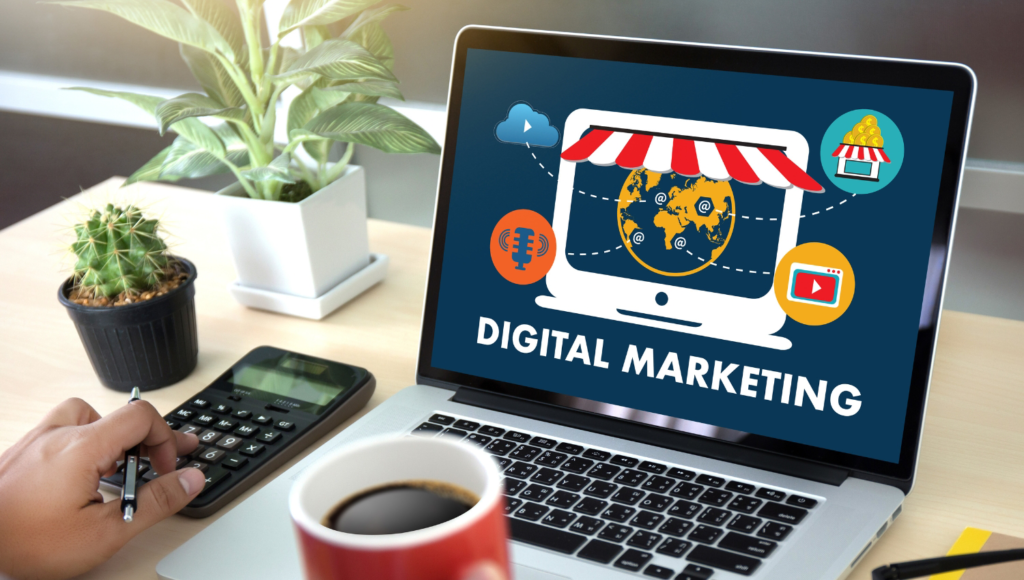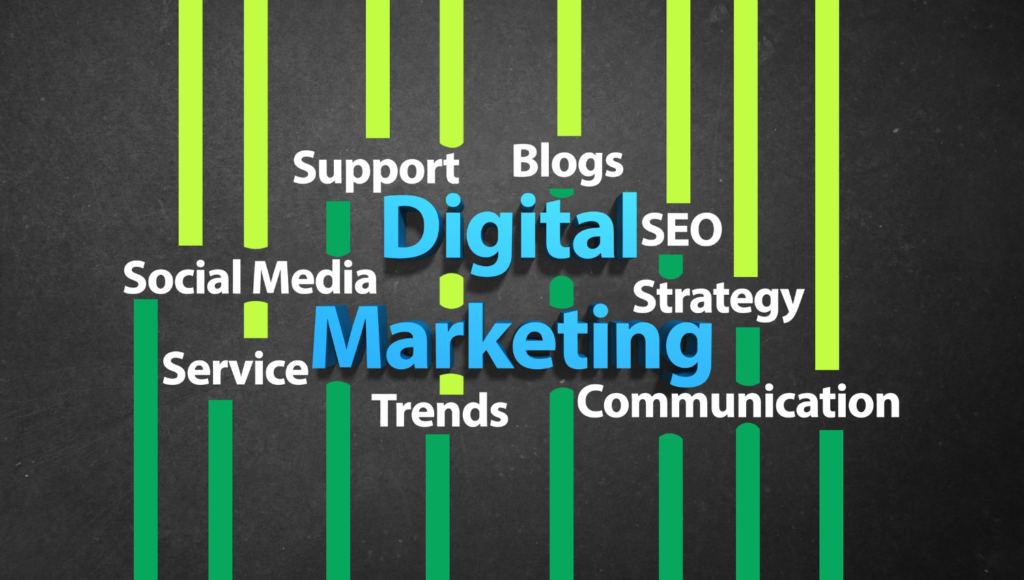The word “digital marketing” is no longer unknown, and most people understand what it means.
However, if you are still part of those who don’t know about it, let us help you there and how it can transform the game of your marketing strategy.
So let’s start with the basics first.
Table of Contents
Digital marketing is the practice of promoting items or services digitally using the internet or digital platforms such as Google, Facebook, Instagram, etc.
Some people use digital and online marketing terms interchangeably and think of them as the same thing but there is a difference between them.
Digital marketing includes online marketing as a subcategory. It is the promotion and sale of goods or services through the use of a network such as an internet.
Digital channels, on the other hand, are used by digital marketers to engage with customers, advertise their products and services, and collect feedback on their performance.
Digital marketers are in charge of creating a digital strategy that incorporates all parts of a company’s online presence. They also help in building a brand identity through the use of various content forms such as blogs, social media postings, videos, infographics, and so on.

Digital marketing can be really helpful for a business as it encompasses a wide range of activities. Let’s have a look at them here:
SEO is optimizing a website to rank higher in search engine results pages (SERPs) for specific keywords or phrases. To do a powerful SEO digital marketers optimize the content and structure of a website, as well as build high-quality backlinks from other websites.
As the name suggests it requires using social media platforms like Facebook, Twitter, Instagram, and LinkedIn to build brand awareness, engage with customers, and drive traffic to a website.
We send targeted and personalized emails to a list of subscribers in email marketing to promote a product or service, generate leads, and drive conversions.
Online advertising is also a type of digital marketing as it involves placing advertisements on websites or social media platforms in order to reach a specific audience.
Businesses can target their ads based on factors such as location, demographics, and interests by using various ad formats such as display ads, search ads, and video ads.
In mobile marketing we use mobile apps, messaging, and other mobile-specific channels to reach and engage with customers on their mobile devices.
So, the primary goal of digital marketing is to connect with customers wherever they spend time online and to reach them through various digital channels with targeted and personalized messages.
Businesses can track the effectiveness of their marketing efforts and make adjustments as needed to improve their performance by using data and analytics.

It is important due to its numerous benefits such as:
Digital marketing channels, such as social media and email, can reach customers anywhere in the world. This is especially useful for small businesses that may not have a physical storefront or a large traditional marketing budget.
Digital marketing is often more cost effective than traditional marketing methods, as it allows businesses to target specific audiences and track the effectiveness of their campaigns in real time.
This will enable businesses to allocate their marketing budget more efficiently and see a higher return on investment (ROI).
Digital marketing allows businesses to tailor their marketing messages to specific segments of their audience based on data and analytics.
This can lead to more relevant and effective marketing campaigns, as businesses can deliver personalized messages that are more likely to resonate with their target audience.
Digital marketing provides a wealth of data and analytics that can be used to track the performance of marketing campaigns and make data-driven decisions.
This allows businesses to see which marketing channels and tactics are most effective and to optimize their campaigns for better results.
Digital marketing channels, such as social media and messaging apps, allow businesses to engage with customers in real-time and provide timely responses to their inquiries and requests. This can lead to higher customer satisfaction and loyalty.

Here are some steps to follow when creating a digital marketing strategy:
The first step in developing a digital marketing strategy is identifying who your target audience is. This includes determining their demographics, needs, and interests, as well as where they spend their online time.
The next step is to define your marketing goals. These should be specific, measurable, attainable, relevant, and time-bound (SMART).
Some common goals for digital marketing campaigns include increasing website traffic, generating leads, and driving sales.
After defining your target audience and goals, you can begin identifying the marketing channels and tactics that will be most effective in reaching and engaging your audience.
Search engine optimization (SEO), social media marketing, email marketing, online advertising, and other strategies may be used.
Content is an essential component of any digital marketing strategy. Creating an effective content plan prior to executing your marketing plan will assist you in meeting your goals.
This includes developing a content calendar outlining the types of content you will produce, who will produce it, and when it will be published.
It’s critical to track and analyze the performance of your digital marketing campaigns to determine what works and what doesn’t.
This can include tracking website traffic and user behavior with tools like Google Analytics and using the data to optimize your campaigns and identify areas for improvement.
You can adjust your digital marketing strategy as needed based on the data and insights you collect to optimize your campaigns and improve performance.

Creating a digital strategy requires a combination of research, planning, and analysis. By following these steps, you can develop a strategy that is tailored to your business goals and target audience and that is designed to drive results.
In case you find any guidance or have any doubts you can contact Quirkywriteups as we are helping businesses and owners to upskill their digital marketing game by providing them with personalized strategies and plans.
Comments (4)
Tree Mail Jan 01 2024 - 11:00 pm
Its like you read my mind You appear to know so much about this like you wrote the book in it or something I think that you can do with a few pics to drive the message home a little bit but instead of that this is excellent blog A fantastic read Ill certainly be back
Neha Jan 05 2024 - 1:28 pm
Thank you so much.
Buy SMTP Jun 25 2024 - 4:04 pm
Email responsiveness enhances user experience.
Backlink Website List 2024 Jul 15 2024 - 6:23 am
Establish your online presence effectively using blog creation platforms optimized for backlink integration.